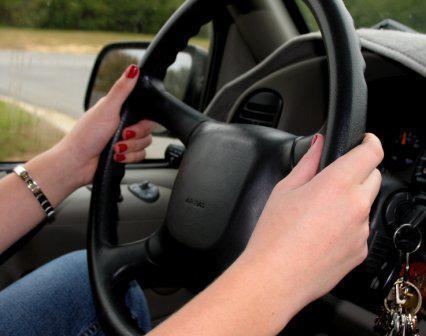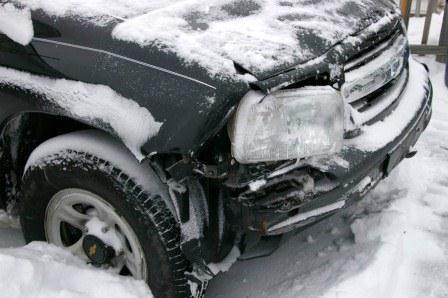Recent Blog Posts
Ask Gimbel, Reilly, Guerin & Brown, LLP - The Lowdown on Marital Property
 Question: I am going to be getting married this fall. I currently own my own home as well as a rental property. Will I still be considered the "sole" owner of these properties once I get married?
Question: I am going to be getting married this fall. I currently own my own home as well as a rental property. Will I still be considered the "sole" owner of these properties once I get married?
This is a question that we hear a lot, unfortunately, sometimes it is after you've said "I Do." Before we go into too much detail, it is imperative to point out that upon marriage; all property is considered marital property regardless of how the asset is titled. If you wish to maintain any property as individually owned after you are married, you must enter into a comprehensive marital property agreement that delineates ownership of your assets under a variety of circumstances.
The Marital Property Actrecognizes that it takes both spouses to support a marriage, regardless of whether or not they are both earning a salary (or equal salaries). In general, the law states that whatever assets are brought to the marriage by both spouses and acquired during a marriage belongs, equally, to both spouses. This includes the debts of both spouses.
NJ Parents Forced to Pay College Tuition – Could it Happen in Wisconsin?
By Attorney Max Stephenson
 In the category of “you can’t make this stuff up,” is a family law case out of Camden County, New Jersey. In the case, Temple College Junior, Caitlyn Ricci, sued her divorced parents after they refused to pay her college tuition. While the terms of their divorce settlement settled the issue of child support, there was no stipulation as to how her college education would be paid.
In the category of “you can’t make this stuff up,” is a family law case out of Camden County, New Jersey. In the case, Temple College Junior, Caitlyn Ricci, sued her divorced parents after they refused to pay her college tuition. While the terms of their divorce settlement settled the issue of child support, there was no stipulation as to how her college education would be paid.
According to the CBS affiliate in Philadelphia, during her childhood, Ricci’s parents did their best to support each other in parenting their daughter. Upon graduating from high school in 2012 it was determined that Caitlyn would attend Gloucester County College and live at home with her mother. In an effort to prove she was ready to take the next step and live away from home, she accepted an internship at Walt Disney World. The internship, however, was terminated when she was sent home for underage drinking. After a dispute with her parents about living away from home and attending school out of state, she moved in with her paternal grandparents.
Knowing Your Rights When Purchasing a Car - Part One
Shopping for a car can be a daunting task. Factor in the desire to purchase a pre-owned vehicle and the job can become doubly disparaging. While we can't make the shopping component of the process easier, we can provide a few tips to give you the best chance of a favorable end result. The following six tips are the first in a three part series on Knowing Your Rights When Purchasing a Car. They are intended to give the consumer some pointers when purchasing a car, but do not negate the need for appropriate legal counsel in special situations.
1. Car-Fax Reports - Car-Fax is an online service that allows the consumer to obtain information on a specific vehicle before they decide to make a purchase. The report can offer a great baseline for vehicle maintenance and upkeep (if information is actually recorded) and will give a background on any accidents in which the vehicle might have been a part. However, it is important to remember that this tool only records maintenance that is conducted (and recorded) by a licensed professional. It will not note any upkeep, or lack of upkeep on the part of the owner. It is also crucial to remember that a clean Car-Fax report does not necessarily mean that the car was well taken care of...it simply means, no negative data was collected. One of the best ways to ensure that a car is in good working order is to spend a few extra dollars and have a mechanic look it over before you make your final selection.
Knowing Your Rights When Purchasing a Car - Part Two
 Unpeeling Wisconsin's Lemon Law
Unpeeling Wisconsin's Lemon Law
After the purchase of a car, most owners assume that it will be smooth driving ahead. While this is generally the case, sometimes things don't go as planned and unwanted issues occur. The following blog offers insight in the Lemon Law in the State of Wisconsin, and what the consumer needs to know when purchasing a car.
The Lemon Law protection covers new car purchases and leases. Additionally, the situation must meet the following requirements:
- The vehicle must not conform to manufacturer's express warranty.
- There must be substantial defects affecting the use, safety or value of the vehicle.
- There must be manufacturer defects that occurred during the first year from the delivery date or the expiration of the warranty; whichever comes first.
- The vehicle must have been taken in a minimum of 4 times for the same problem or been out of service for a cumulative total of 30 calendar days.
Knowing Your Rights When Purchasing a Car - Part Three
 Eight Laws Used Car Buyers Should Know
Eight Laws Used Car Buyers Should Know
The following is the last post in our three part series on Knowing Your Rights When Purchasing a Car. In our previous posts we provided information on tips to keep in mind when buying car as well as input on Wisconsin's Lemon Law which covers the purchase of a new car. We also provided some advice on protection for consumers who purchase used cars. In this post, we will provide eight additional resources for used car buyers who struggle with chronic car problems.
Other Laws that Cover Used Cars Provided by Lemonjustice.com:
- Magnuson-Moss Warranty Act - The federal Magnuson-Moss Warranty Act states that the manufacturer of any product (from your toaster to your lemon RV) must abide by the warranty. For Wisconsin vehicles, this includes written or implied warranties, or service contracts.
What You Should Know About Wisconsin's Graduated Driver Licensing Law
 By Attorney Jason Luczak
By Attorney Jason Luczak
In the year 2000, the State of Wisconsin enacted the Graduated Driver Licensing (GDL) Law in an effort to reduce the number ofaccidents and deaths among young drivers. According to the Wisconsin Department of Transportation (WisDOT), "Only 6% of all Wisconsin-licensed drivers are ages 16-19, but drivers in this age group account for 16% of all drivers involved in crashes." With that in mind, the GDL imposes strict restrictions on young drivers which lessen as they gain more experience behind the wheel.
According to WisDOT the restrictions imposed on a Wisconsin probationary license holder younger than 18 years of age (for the first nine months of licensure) under the GDL are as follows:
From 5 a.m. to midnight, a probationary driver can drive alone and go anywhere.Any number of immediate family members can ride along as well as the following people:
Understanding Wisconsin's Child Safety Seat Laws
 Ask any parent and they will tell you that the safety of their children is paramount to any other job they perform. Keeping a child protected can seem like a daunting task giving the dangers that seem to lurk around every corner. Driving in the car with a child is no exception. Car accidents put young children at great risk of serious injury and even death. According the National Highway Traffic Safety Administration, "Car crashes are the number one killer of children one to 12 years old in the United States." Thankfully there are laws in place to protect young children as passengers in a vehicle. The real question is, "do parents and other care takers really understand the child safety seat laws in Wisconsin?"
Ask any parent and they will tell you that the safety of their children is paramount to any other job they perform. Keeping a child protected can seem like a daunting task giving the dangers that seem to lurk around every corner. Driving in the car with a child is no exception. Car accidents put young children at great risk of serious injury and even death. According the National Highway Traffic Safety Administration, "Car crashes are the number one killer of children one to 12 years old in the United States." Thankfully there are laws in place to protect young children as passengers in a vehicle. The real question is, "do parents and other care takers really understand the child safety seat laws in Wisconsin?"
As a passenger in car, there are several weight, age and height guidelines for children as outlined by the Wisconsin Department of Transportation (WISDOT) as part of the child safety seat law (http://dot.wisconsin.gov/safety/vehicle/child/laws.htm). Among these requirements are the following:
Texting and Driving in Wisconsin - Is the Person Sending the Text Responsible?
Late in 2010, the State of Wisconsin adopted a law, section 346.89(3)(a), Stats.,which banned texting and driving. The law was designed to stop individuals from composing or sending texts, emails or in any other way creating typed messages via their cell phone while operating a motor vehicle. The law was designed in the hopes of reducing automobile accidents in Wisconsin due to texting. The law does not, however, specifically ban the receipt or reading of a text message or email message. Yet.
With that in mind, a recent civil suit in New Jersey, (Kubert, et.al.v. Best, et. al., 2013 WL 4512313, (N.J. Super.Ct. App. Div. 2013) might make you think twice before sending a text message to a motorist whom you know is actively in the process driving. The case involves an accident in which a young man crossed the center line while texting and struck a husband and wife who were operating an on-coming motorcycle. The husband and wife, who were both severely injured (resulting in each losing a leg), not only brought personal injury claims against the driver of the car, but also against the individual who was texting the driver.
5 Reasons to Hire an Attorney for a Minor Automobile Accident
Ask anyone who has been in a minor fender bender or other car accident and they will tell you that there were many other ways they would have rather spent their day. Even minor accidents can often add up to major headaches given the expense of repairs, injuries, rental cars, time off work and just dealing with other people involved in the incident. While many people choose to handle these frustrations on their own, even small accidents are best left to a professional who can guide you through the process making it a lot less painful. Here are five things you might not have considered regarding the importance of hiring an attorney for a minor accident.
1. They know how to handle the insurance company - While insurance may often cover most of the vehicle damage from your accident, it is important to remember that they are a business that is most concerned with their best interests. A qualified attorney will understand the intricacies of dealing with insurance companies and can often negotiate a better deal.
Three Tips to Consider if you are Involved in a "Miss-and-Run" Accident
 Imagine driving down an icy two-lane county highway on a winter night, when suddenly an oncoming car swerves into your lane, headed right toward you. As you find yourself inches away from a head-on collision, you make a snap decision to pull the wheel to the right-rather than into the line of oncoming traffic. While you narrowly avoid contact with the oncoming car, the ice on the shoulder of the road makes it impossible to regain control of your vehicle. Your car flips several times before settling upside-down in the ditch. You are injured and your car is totaled, but the oncoming driver is nowhere to be found.
Imagine driving down an icy two-lane county highway on a winter night, when suddenly an oncoming car swerves into your lane, headed right toward you. As you find yourself inches away from a head-on collision, you make a snap decision to pull the wheel to the right-rather than into the line of oncoming traffic. While you narrowly avoid contact with the oncoming car, the ice on the shoulder of the road makes it impossible to regain control of your vehicle. Your car flips several times before settling upside-down in the ditch. You are injured and your car is totaled, but the oncoming driver is nowhere to be found.
Fast-forward a month later...between the mounting hospital and medical bills, your totaled vehicle and time off of work, you are struggling to make ends meet. You are confident that having signed up for, and paying premiums on uninsured motorist coverage, all of your expenses will be covered. After all, this type of situation is the reason why you have insurance...but will your insurance cover you? The answer: MAYBE. In most cases, you will have coverage only if, in your altered state of mind, you had the forethought to forget about your injuries, lost vehicle, childcare and missed work, and take a number of arbitrary steps.










